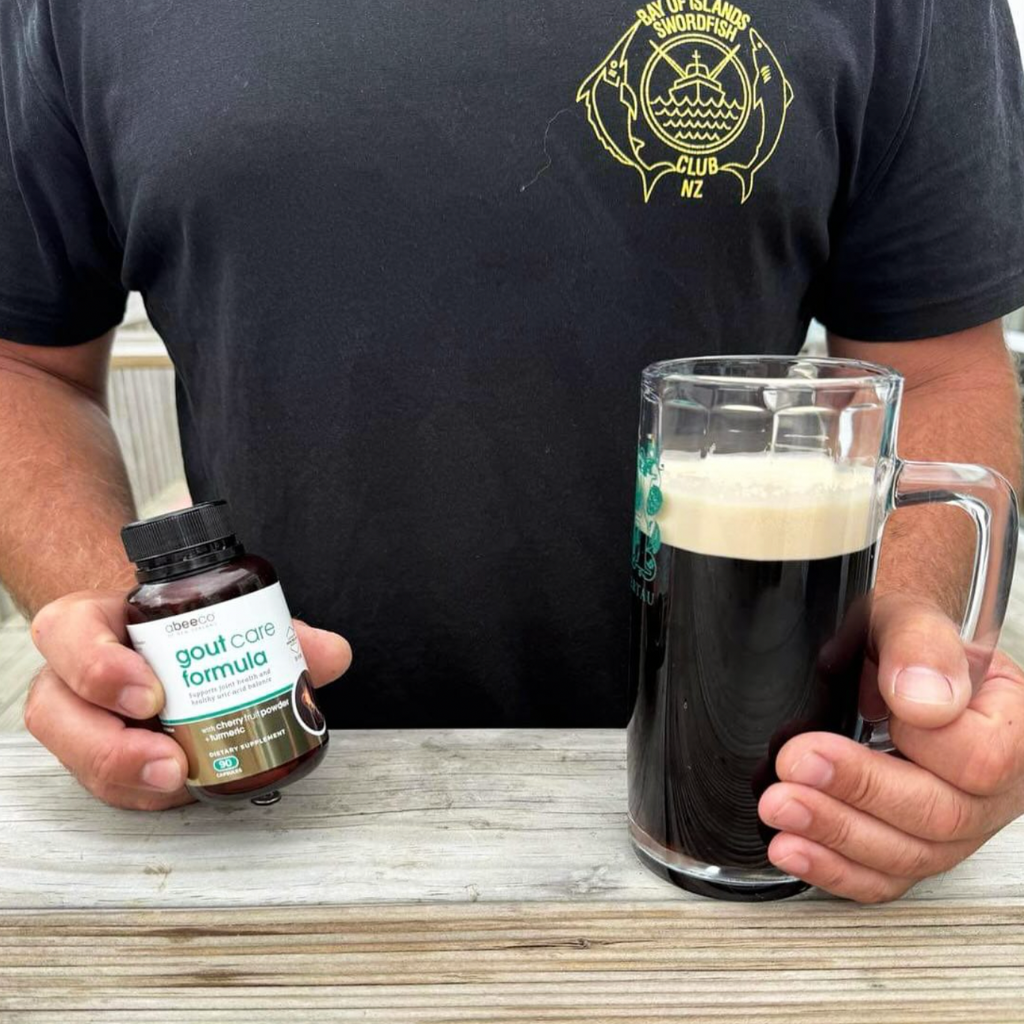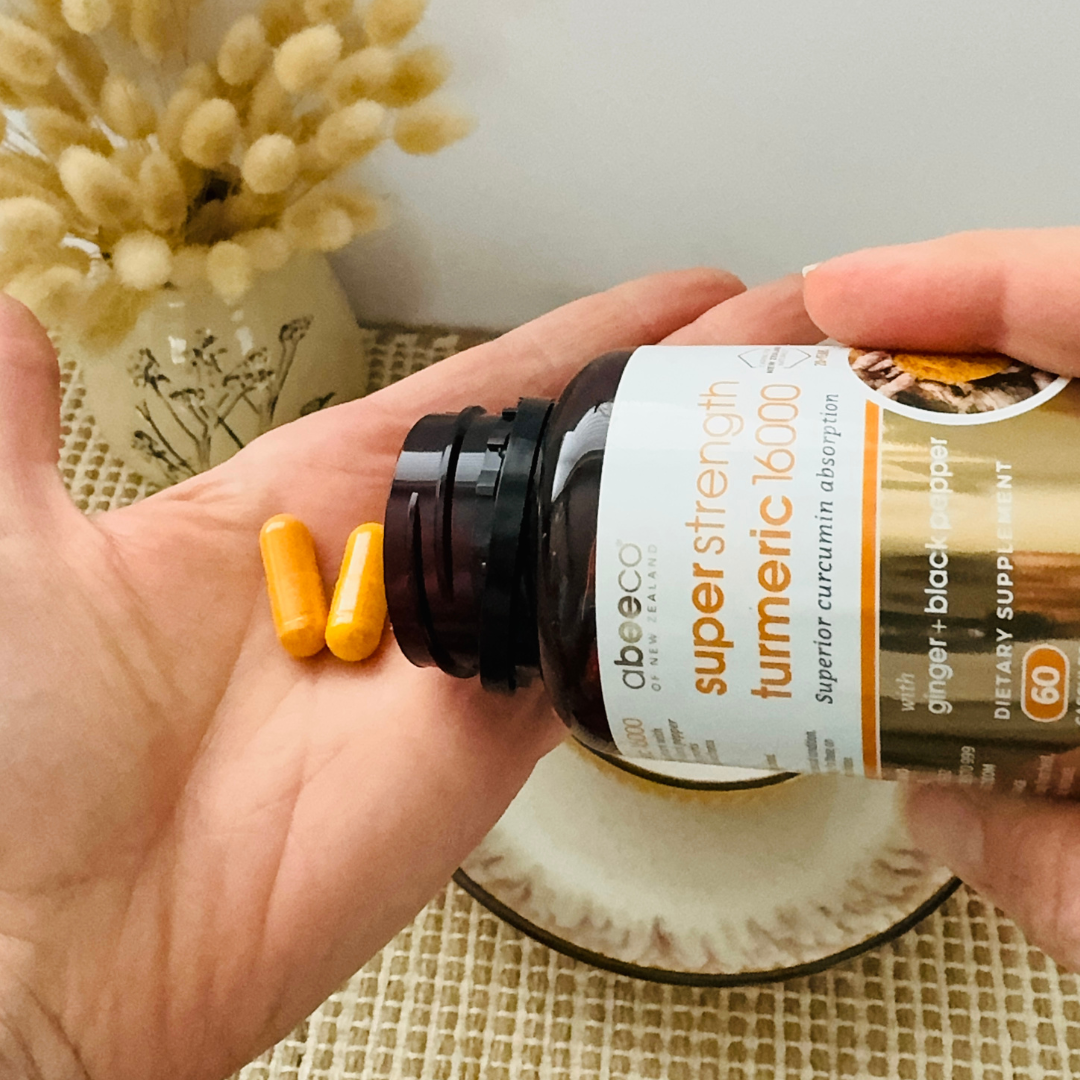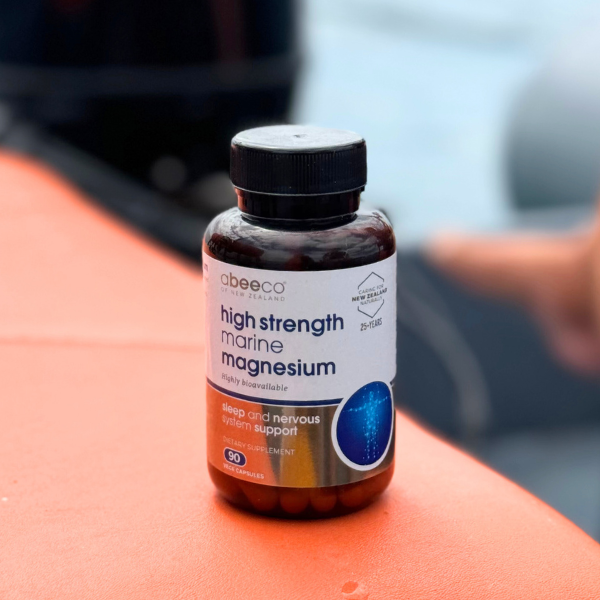Award-Winning Beauty! Bee Venom Mask wins GOLD at the 2025 Global Green Beauty Awards 🏆
Award-Winning Beauty! Bee Venom Mask wins GOLD at the 2025 Global Green Beauty Awards 🏆
Supplements
Shop by Health Concern
Shop by Category
Shop by Health Concern
Shop by Category
Skincare
Shop by Skin Type / Concern
Shop by Category
Shop by Skin Type / Concern
Shop by Category

Why Cherries Could be the Secret to Relieving Gout
January 11, 2023 2 min read
According to the Health Research Council of New Zealand (www.hrc.govt.nz) Gout is the most common form of inflammatory arthritis and is more prevalent in New Zealand than any other country. Over 160,000 patients in New Zealand suffer from gout, the majority of whom are Māori or Pacific people.
Antioxidant Rich Cherries
So, you may be wondering, where do cherries come in? Well, one of the best ways to manage gout attacks is to reduce the levels of uric acid in the blood and remove it from the body, and cherries were found to do just that by a 2014 study from Northumbria University.
In 2012, another study by the American College of Rheumatology tracked 600 gout sufferers for a period of over 12 months and found that those who took a cherry extract experienced a 35 per cent lower risk of gout attacks compared to those who took none, regardless of gender, weight, diet and use of anti-gout medications.
“A daily dose of cherries (fresh or frozen) is a great addition to your diet along with turmeric and dairy such as milk and yoghurt,” says Jude Salisbury, managing director of Abeeco New Zealand, who produce a Kiwi-made High Potency Gout Care Formula, which contains cherry powder, turmeric and selenium to aid in maintaining healthy uric acid levels, fluid balance, digestion and overall joint health.
“We have a great number of customers telling us how this product has helped them and has really changed their lives. In a recent internal customer survey, 85 per cent experienced less severe gout attacks after using our Gout Care Formula after three months*.”
Thankfully, in addition to increasing your cherry intake, there are a number of gout-friendly food swaps you can make to ensure you don’t have to miss out on one of the best parts of the festive season – eating and drinking.
“Instead of purine-high turkey, bacon and organ meats, a better option may be lean beef, chicken or ham. Seafood is generally a no-go but the lower purine options of salmon, crab, crayfish, oysters and shrimp may be consumed in moderate amounts. Include lots of fruit and vegetables; evidence suggests that plant foods aren’t associated with increased risk of gout even if they have a high-purine content.
“Alcohol, especially beer, and sweet fizzy drinks are best avoided but sticking to wine is preferable if you are going to have a drink or two. Water with fresh lime or lemon juice is your best option as it can help reduce the risk of recurrent attacks whilst getting in all important vitamin C.”
*Based on 33 respondents that have taken or continue to take Abeeco Gout Care.
Disclaimer: This article provides general information only and is not a substitute for medical advice. Abeeco products are for cosmetic and dietary purposes. Our supplements & tonics aren't intended to diagnose, treat, cure, or prevent any disease. Consult a healthcare professional for medical advice or before starting new supplements. Individual results may vary. Always follow product directions. Our products are not intended to treat or cure any medical condition.












